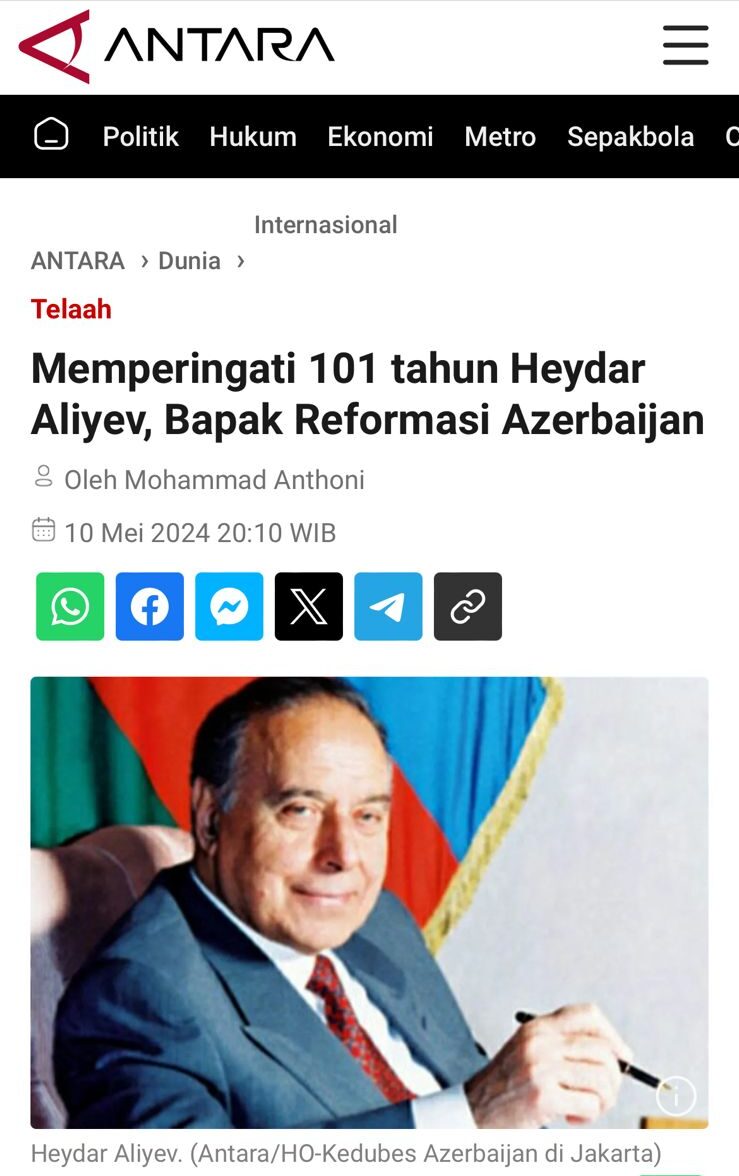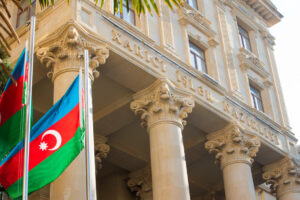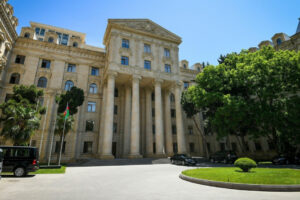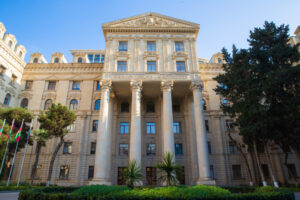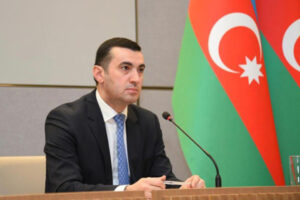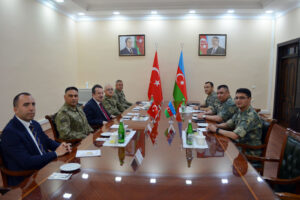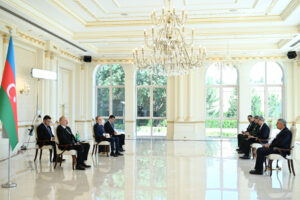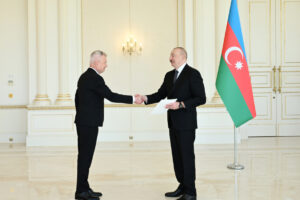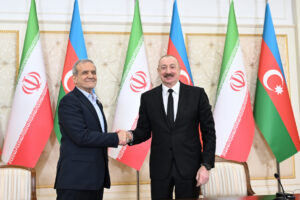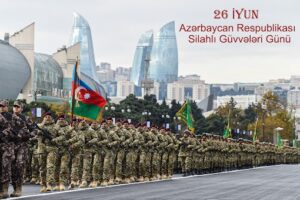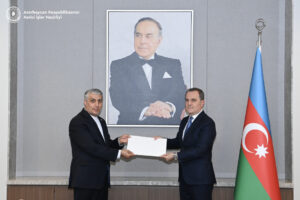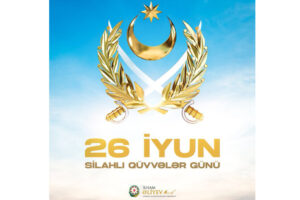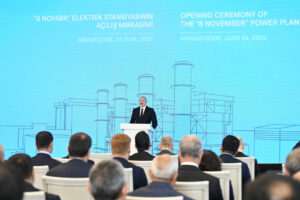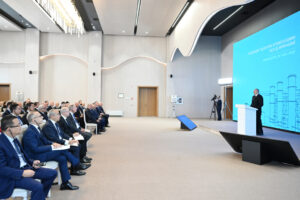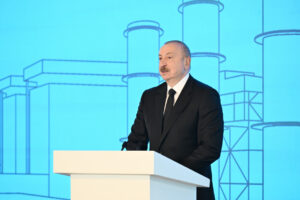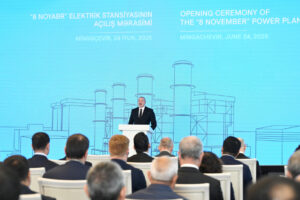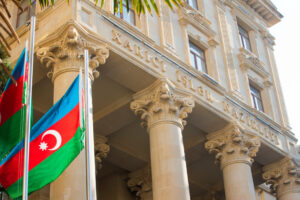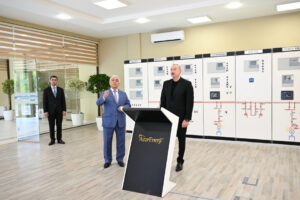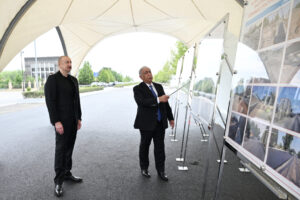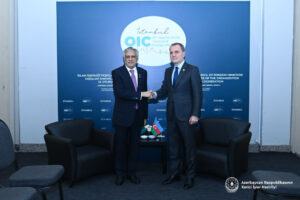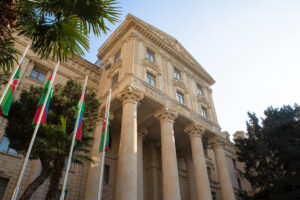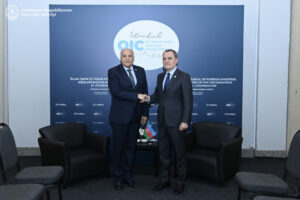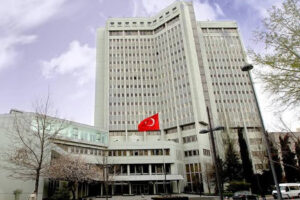Tokyo, 10 May, /AJMEDIA/
Azerbaijan, located in the Caucasus at the crossroads of Europe and Southwest Asia and bordered by Russia to the north, Georgia and Armenia (West), and Iran (South) is struggling to carry out the transformation process necessary for the country’s future development in the first years of its independence, as it faces a very serious political, economic and military catastrophe.
The national independence of the Republic of Azerbaijan was restored and the country had the opportunity to pursue an independent policy through the realization of sovereign economic and political rights, and to a free market economy after the dissolution of the USSR on October 18, 1991.
In a complex and contradictory period an Azerbaijani figure named Haidar Aliyev was called to return to Baku, Azerbaijan, from exile in the summer of 1993 to face the challenges of reform.
Then on October 3, 1993, Haidar Alirza Oghlu Aliyev or better known as Haidar Aliyev was elected President of the Republic of Azerbaijan on the trust of the people. He restored the stability of his country in a short time and laid the fundamental foundation for future development.
To achieve the country’s future development, the first thing that needs to be done is to save the economy from crisis. Haidar Aliyev, who has years of management experience, wasted no time in launching a series of economic reforms.
Haidar Aliyev is a historical figure, creator and architect of the independent state of Azerbaijan. Its great role in the history of Azerbaijan has become increasingly realized in recent years. Thanks to its thorough reforms, Azerbaijan has become a modern and dynamically developing powerful state. The foundations of domestic policy laid by Haidar Aliyev have brought stability to Azerbaijan, while his foreign policy has become the basis for recognition as a reliable and respectable partner in the international arena.
Indonesia recognized the independence of the Republic of Azerbaijan on December 28, 1991, and diplomatic relations between the two countries were established nine months later, namely on September 24, 1992. On February 1, 2006, the Embassy of the Republic of Azerbaijan was established in Jakarta, then on December 2, 2010, the Embassy of the Republic of Indonesia was opened in Baku, the capital of Azerbaijan. The two countries have many similarities, especially regarding society and socio-culture.
Thanks to Haidar Aliyev’s wisdom and strategic outlook on the future, Azerbaijanis now live in a free, democratic and law-based state. He has twice led Azerbaijan and developed rapidly under his leadership. First appointed leader of Azerbaijan in 1969, during the time of the Soviet Union. During his leadership, Azerbaijan prospered in various fields, such as culture, art, industry, agriculture, and more.
That is why the people of Azerbaijan elected him for the second time to power in 1993, when Azerbaijan was on the brink of civil war. He came to power at a very important time for Azerbaijan and from then on began to pursue the path of reform and development. In those years the foundation of statehood in Azerbaijan was laid.
Haidar Aliyev gave his approval to be re-run in the presidential election held on 15 October 2003. But due to his health condition he resigned.
Patriot nation
At every stage of his life, this great leader acted as a wise politician, a brave man and a patriot of his nation. His wise and strategic decisions determined the success of Azerbaijan’s future development.
Thus, the situation in the country in 1995 completely stabilized and the Constitution of the country was adopted. It is noteworthy that the tricolor flag of Free Azerbaijan was first raised by Haidar Aliyev in Nakhchivan. From that moment the rule of law in the country was upheld, political and economic reforms began to be implemented. Due to Haidar Aliyev’s strategic decision regarding the country’s oil and gas industry, it became a milestone in the success of Azerbaijan’s development.
Haidar Aliyev, who was born on May 10, 1923 in the city of Nakhciwan, Republic of Azerbaaijan, and died on December 12, 2003 at the age of 80, is widely known as the great national leader of the Azerbaijani people and the founding figure of the independent state of Azerbaijan.
Under the leadership of National Leader Haidar Aliyev, the Republic of Azerbaijan adopted its new Constitution in November 1995, laying the legal foundation for a large-scale national economic program, which is now the main source of all existing economic normative legal frameworks.
Azerbaijan began to enter a new stage of development. During that period, the country recovered potential losses due to economic growth and achieved results, such as a significant reduction in the unemployment rate. In addition, the country’s strategic currency reserve was formed, confidence in the banking system was restored, and stable sources of state budget funding were identified. Azerbaijan has also embarked on a number of cooperative infrastructure development projects, including the Baku-Tbilisi-Jeyhan oil export pipeline.
The growing economic development of Azerbaijan and the country’s increasing foreign exchange reserves from year to year pose the need to improve existing mechanisms in the field of financial control, for example.
Haidar Aliyev as a political and state figure, the leader of the people who undoubtedly became a legend while he was alive. Therefore, the phenomenon of Haidar Aliyev has always attracted people’s attention. The press at home and outside Azerbaijan reported on his strategic role in advancing Azerbaijan while leading as a reformist.
Today his historical heritage is respected by the Azerbaijani people and his policies were continued by the President of the Republic of Azerbaijan Ilham Aliyev who came to power in October 2003, nine years after his father sought a ceasefire with Armenia.
Thanks to the leadership and policies pursued by President Ilham Aliyev, a new glorious chapter of Azerbaijan’s glorious history is being written. As a result of the 44-day Patriotic War under the leadership of Ilham Aliyev, the brave Azerbaijani army liberated the occupied territories of the Armenian army.

